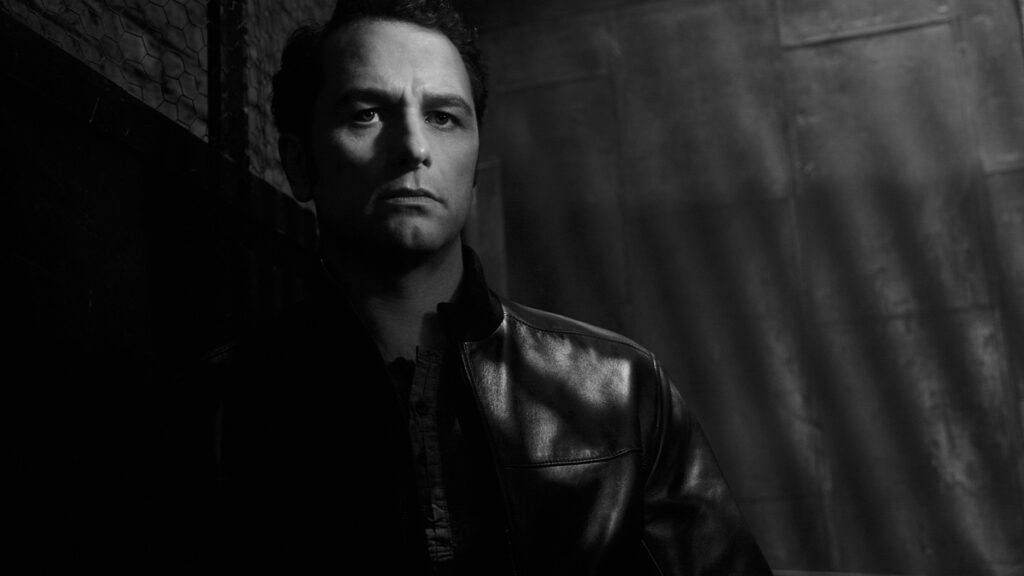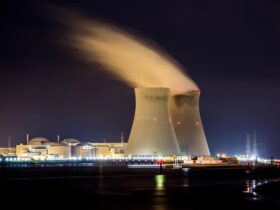A “normal” American family may seem like the least likely framework for discussions about the politics of potential nuclear war.
The narrative choice of such a family, however, is clear once audiences are made aware that this “family” is merely the cover-up for a pair of Russian KGB spies living in the United States during the Cold War.
This is the premise for the FX television show “The Americans,” by Joseph Weisberg, which tells the story of two double agents, Elizabeth Jennings (Keri Russell) and Philip Jennings (Matthew Rhys). The identities of these two characters as spies become particularly salient during simmering political, nuclear-related tensions between the United States and Russia.
In the very first episode of “The Americans,” audiences are introduced to the couple, who have replacedtheir real Russian names, Mikhail (for Matthew) and Nadezha (for Elizabeth), with American ones. According to Matt Brennan writing for Paste Magazine, the hidden nature of these names is significant because of the inherent division they imply: that one cannot be both Russian and American at the same time, but instead must outwardly perform a notion of loyalty.
All of this fictional conflict is directly related to the realities of the Cold War, the period of time from roughly the late 1940s to 1991 during which the United States and Russia were at a political standoff due to a race to develop nuclear weapons. This race, and each country’s associated nuclear testing, naturally contributed to a global sense of dread that resonates throughout “The Americans.” The threat of nuclear warfare is omnipresent in the story’s background assumptions that Russian and American forces are oppositional.
Although it is not an explicitly antagonistic force until much later in the series, the nuclear threat is ideologically represented in the Russian identities of Philip and Elizabeth. The aspect of Philip and Elizabeth’s loyalty to Russia is constantly positioned as dangerous to the safety and security of the two’s American identities.
Russia, by virtue of its nuclear power, is a threat to the United States. By association, so are Elizabeth and Philip’s Russian identities, a transnationalism that they are forced to hide in order to become completely American on the outside.
Even as the show represents the struggles these double agents face, there is the implicit idea that for Elizabeth and Philip to renounce their Russian identities entirely, there would need to be a compromise between the two. Philip, for example, seems to desire being more American and is more willing to give up his Russian side, while Elizabeth is comparatively steadfast in her Russian identity.
In essence, the real-life nuclear conflict becomes thematically symbolic to the story’s core, which centers on the many dimensions of warfare — both globally and between individual lives. “The Americans” is a fictional show, which means that Elizabeth and Philip should only be taken as metaphorical ideas rather than representations of history. Still, there are moments when history is incorporated into the fiction of the show.
One of those examples is in “The Day After,” episode 409 of “The Americans.” Philip, Elizabeth, and their family watch the 1983 TV movie “The Day After,” about the devastation left by nuclear war. In that scene, the Jennings mirror the millions of American viewers who watched the film when it first aired.
Writing for the Washington Post, Hank Stuever discusses the parallels in how both he and the fictional Jennings reacted to 1983’s “The Day After.” Both in Stuever’s own life and in the TV show, the emotional response to the movie was one of shock.
In “The Americans,” the experience leaves the family in fear about the implications of a nuclear war, as well as their roles as spies in the middle of the conflict. Stuever analyzes the release of the movie as a defining moment on both domestic U.S. and international fronts.
The fictional Elizabeth, Steuver writes, is motivated by this movie to solidify her stance against the United States. After all, for her, watching the destruction brings up memories of the United States’s direct use of nuclear force in the past.
In terms of international relations in real life, the film is said to have contributed to Ronald Reagan’s drive for political efforts towards nuclear prevention. The influence of media on policy is clearly illustrated here. It also shows the capabilities of focused storytelling in educating audiences about greater political concerns.
Moreover, Peter Suderman writes about how “The Americans” demonstrates the ideal that the personal was political, and vice versa.
“‘The Americans’ was a spy thriller about the mundane difficulties of marriage, yes — but it was also a show about geopolitics and the ways in which powerful international rivals interact, conflict, and, maybe, forgive each other, by insisting on treating people as individuals rather than as political and ideological adversaries.”
Put simply, “The Americans” can illuminate the politics of the nuclear threat through a narrative lens. As a form of media, the show portrays real-life concerns about nuclear power and its consequences. The emphasis “The Americans” places on the war of identities and ideologies — Russian and American — regarding the potential of nuclear war are significant.
For audiences, the show bears important lessons about the history of international relations, and most importantly, for the future.







